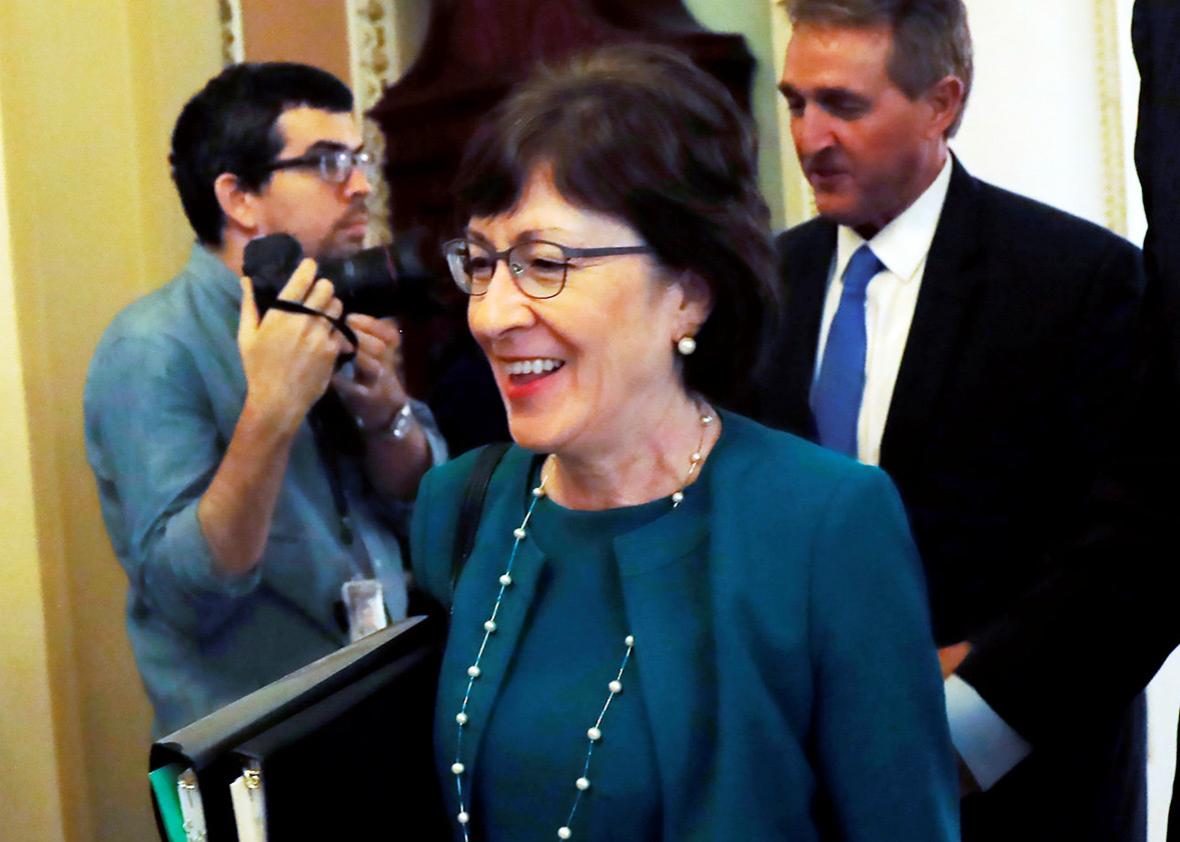Fifty-one senators and 227 members of the House of Representatives have already voted in favor of Republicans’ tax overhaul. It makes sense, then, to assume the House and Senate conferees will successfully put the finishing touches on a final bill and pass it through both chambers again.
But this week has shown that the conference committee and Republican leaders have far more work to do than just dotting i’s and crossing t’s. There is a scenario or two in which this behemoth of a bill falls apart.
The biggest development this week was that negotiators, for the first time in the process, seriously looked at reinstating some version of the state and local income tax deduction. There appear to be two reasons for this. The first would be the sizable, and mercurial, California GOP delegation in the House. Eleven out of 14 of these members voted for the original House bill—an odd move, since one of the bill’s ambitions is to redistribute Californian wealth elsewhere. Rather than flex their leverage in the original fight, though, they put their faith in Majority Leader Kevin McCarthy to ensure it’s fixed in conference. The second reason—and the one that explains why Californians might prevail—is that they appear to have an even greater ally in this fight than McCarthy: President Trump. The Washington Post reported this week that Trump’s rich friends in New York have been bitching to him about the SALT elimination. That goes a long way.
Even a modest retention would be costly. Eliminating the deductibility of state and local income taxes is a major revenue-raiser in both the House and Senate bills. Other pay-fors that were included in both the House and Senate bills might not last in the joint negotiations as well. There is a flat-out error in the Senate bill regarding the corporate alternative minimum tax, and the Senate’s last-minute decision to keep the individual AMT is meeting resistance as well. The House bill, which more aggressively pursued deductions for graduate students and those with major medical expenses, is also expected to be tamed.
What all this means is that conference negotiators are under pressure to find some hundreds of billions of dollars in new revenue to keep the bill’s net cost within $1.5 trillion over the next decade.
Conferees could try to make up much of this by fiddling with the new tax brackets—something they’ll need to do anyway, since the House and Senate bills have quite different bracket structures. Or they could give in to pressure to increase their beloved 20 percent corporate tax rate to 22 percent—an option that, at the very least, is not off the table. This would irritate both the supply-siders for whom the nice, round 20 percent figure is the whole point of this exercise, as well as senators like Florida’s Marco Rubio and Utah’s Mike Lee, who were told by those supply-siders during the child tax credit debate that any increase in the corporate rate to help working families would formally mark the end of the American experiment.
If none of these other options work, the negotiators could always resort to further budget gimmickry. The Senate bill, in order to comply with reconciliation rules, already sunsets the changes on the individual side of the tax bill in 2025. Republicans argue that Congress, in a future bill, would likely extend those popular provisions when the time comes—thus masking the true cost of the bill. If negotiators need to mask further costs, they could always just move the sunset up a year or two.
Let’s say that the conferees do safely navigate their way through this maze. There is still a path through which the bill fails that has nothing to do with what’s produced in conference. Republicans currently have 52 votes in the Senate. They lost Tennessee Sen. Bob Corker on the original tax bill. If Democrat Doug Jones finds a way to defeat Roy Moore in the Alabama Senate election and is seated before the conference committee can strike a deal, then they’ll be down to 50 votes.
That could leave it up to Maine Sen. Susan Collins.
Collins’ support for the Senate bill hinged in part on a pledge from Majority Leader Mitch McConnell that two bipartisan health care bills—the Alexander–Murray stabilization bills, and the Collins–Nelson re-insurance proposal—would be passed and signed into law by the end of the year. House Speaker Paul Ryan, though, has suggested he wasn’t party to that deal, and House conservatives are drawing a hard line against supporting any end-of-year package that includes “propping up” Obamacare. If Moore wins on Tuesday, Collins could just get rolled, since the Senate could pass the conference report without her. If Moore loses, then Collins is suddenly in the driver’s seat. Either House Republicans fulfill her requirements—or their entire tax plan fails.
It’s still unlikely that Republicans would come this far on their tax plan only to let it fail. But it’s not the sure thing that many assumed after the Senate passed its bill last week. This is still a live process with lots of moving parts.
